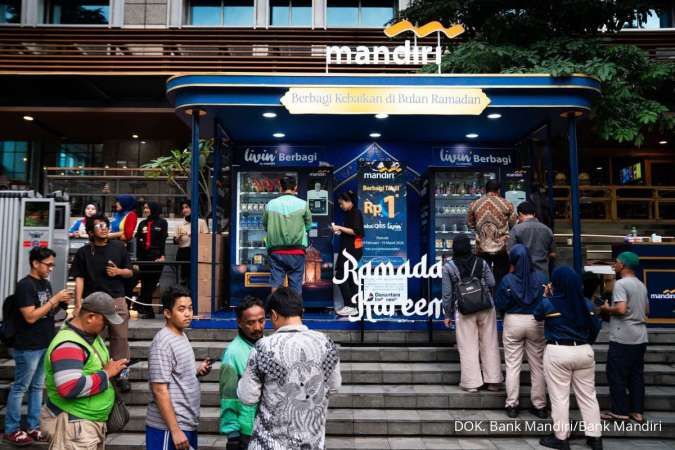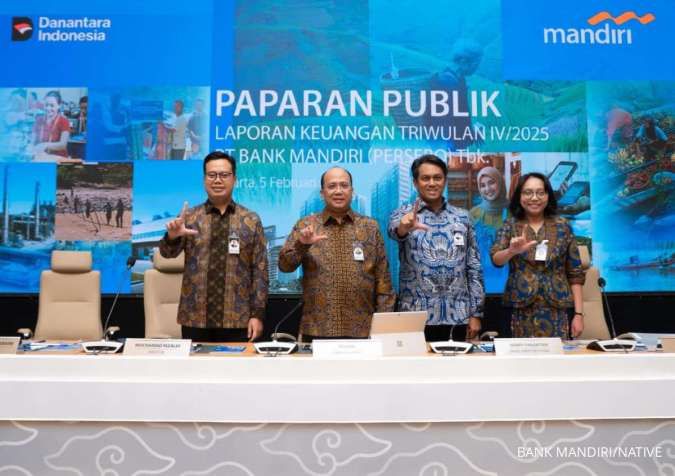JAKARTA. The Indonesia Bond Pricing Agency (IBPA) expects the recent cut in the Bank Indonesia (BI) benchmark rate and low inflation will positively affect the liquidity of the domestic corporate bond market amid global challenges. IBPA director Wahyu Trenggono said the central bank’s decision to cut its interest rate by 25 basis points (bps) to 7.5 percent from 7.75 percent would provide opportunity for corporate bond markets. “The local secondary corporate bond market will be more liquid because the rate will be cheaper than the recent average of 11 percent. Another thing that will affect the market is an improving economy that will be triggered by infrastructure projects,” Wahyu said on Tuesday.
Average daily transactions in local secondary bond markets only stood at Rp 400 billion (US$30.94 million) a day, far lower compared to the 2012-2013 period when the figure reached at least Rp 900 billion, he said. In 2012-2013, the daily transaction could approach Rp 1 trillion although the market saw a lack of supply particularly in the second half of 2013 due to the US Federal Reserve announcement to start tapering-off of its quantitative easing. Regarding The Fed’s upcoming plan to hike its fund rate this year, Wahyu said the market had actually priced-in the potential capital outflow from the emerging market, even though it was expected that the increase would be gradual. “We hope that there will be no shock in the market, but I think that the impact will not be as heavy as the period of 2013-2014 when there was a significant capital flight,” he said. In addition, Wahyu said the impact of The Fed fund rate hike would not be severe as a result of quantitative easing plans from the European Central Bank (ECB) and Bank of Japan, which would compensate with more liquidity. According to IBPA data, Indonesia saw Rp 47.8 trillion in new bond issuance outstanding last year, decreased by 18.8 percent year-on-year (yoy). As of January, the total realized corporate bond issuance, including Islamic bond (sukuk), stood at Rp 4.8 trillion and was expected to reach Rp 60 trillion by the end of this year. In addition, Wahyu said corporate bonds to be issued this year would be in-line with various government projects as more companies would need more funds to support their expansion plans. “Property and other construction-related companies as well as banks and multi-financing firms will be the engine for bond issuance this year,” he said. Meanwhile, Mandiri Sekuritas chief economist Aldian Taloputra concurred, saying BI rate decrease would positively affect the bond market, even though he predicted that the central bank would only decrease 25 bps once more until the end of 2015. Aldian said the main reason for limited BI rate cut would be the remaining volatility of the rupiah, which was predicted to continue its depreciation, especially when The Fed conducted its plan. “However, we predict The Fed fund rate will be increased gradually because there are diverse economic conditions among developed countries. A very high increase of Fed fund rate will also trigger a hike in US imports,” he said.
According to Aldian, the domestic bond market recently has been affected so much by rupiah volatility as the currency is expected to continue depreciating, even though there is a potential of rebound by the end of the year. “We are still expecting that the government will commit to start infrastructure projects, because we have seen that the trend of foreign direct investment started to increase since the first time Indonesia obtained investment grade,” he added. Also on Tuesday, IBPA launched a new web application called “TheNewBIPS” (Bond Information and Pricing Services), which offers referral information system on natural bond market price to support the local bond market investors and players in obtaining better data and information. Data at IBPA shows that the number of bonds evaluated daily by IBPA and displayed at TheNewBIPS reached 496 series, including sukuk and assets-based securitization (KIK-EBA), worth a total of Rp 1.959 quadrillion. (Grace D. Amianti)

